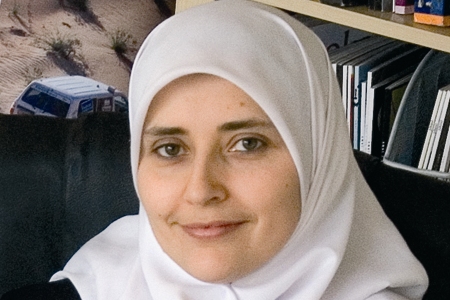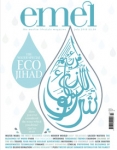
Qur'anic Questions
Issue 70 July 2010
“Have you ever considered the water which you drink?” “No, not really,” was my answer to this very simple question from the Qur’an, and I think the same would be the case for many of us.
Water comes out of a tap, by a process which we are totally disconnected from. It is clean and fresh, and the only time we need to consider it is if a local water main bursts or when there is a hose-pipe ban.
Yet water has amazing properties, and whilst I don’t want to embark on a science lesson, perhaps you might consider these four things:
Ice floats. Big deal you may say, but given that heat rises, and solids usually sink, you would think that ice would sink. If it did so, then during winter lakes and oceans would begin to freeze from the bottom up, to the point that life would cease to exist. However, although water becomes denser as it cools, it expands as it approaches freezing, and starts to become less dense and thus floats – and so life is preserved
Water has a high surface tension. “Wow!” You are thinking, “what’s surface tension?” Basically, it’s what allows ships to float, which reminds me of the Qur’anic verse, “And among His signs are the ships that sail like floating mountains through the seas.” (42:32) But more than just ships floating, surface tension is also responsible for ‘capillary action’, which is how water gets to the top most leaves of trees. Without it, plants and trees could not exist, and nor would life on earth.
Water is the universal solvent, able to dissolve nearly all substances. Even metals and minerals can be dissolved and carried to living organisms such as plants and animals. Without these trace elements, life could not flourish.
And finally, consider water’s unique ability to change from a vapour to a liquid to a solid, which allows for many benefits including the making of clouds. As the Qur’an asks, “Do they never gaze at the clouds pregnant with water, and observe how they are created?” (88:17)
This is another big question from the Qur’an, but once again the answer is probably “No.” Let’s face it, we don’t really consider the clouds other than to work out whether we should take an umbrella with us. And this is the problem.
We have fundamentally disconnected ourselves from the Revelation to be found in nature. We have removed ourselves from the sanctity of the creation and thus detached ourselves from the Divine.
For humanity to once again be reconciled with the Divine we need to reconnect with the natural world. We need to consider the questions put to us by the Qur’an - not to prove the Qur’an’s authenticity, as we are prone to do – but to cause us to reflect on the natural world and to thus establish a connection with God as He manifests Himself through His creation.
However, in our mechanistic approach to the world we have chosen to tame nature, not to connect with her. We want to subdue her, power over her, and establish our supremacy over her. This leads us to the inevitable, but misleading, conclusion that we are in charge and can thus use the natural world as we desire.
This is leading to a deep crisis. As Prince Charles put it during a speech titled Islam and the Environment, given on 9th June 2010, “When we hear talk of an ‘environmental crisis’ or even of a ‘financial crisis’, I would suggest that this is actually describing the outward consequences of a deep, inner crisis of the soul. It is a crisis in our relationship with – and our perception of – Nature, and it is born of Western culture being dominated for at least two hundred years by a mechanistic and reductionist approach to our scientific understanding of the world around us.”
The issues facing us with regards to the environment generally, and water specifically, are many. Over a billion people do not have access to fresh drinking water. Water borne diseases are the world’s biggest killer. There is even predictions that the wars of the 21st century will be fought, not over oil, but over fresh water.
How do we react? Do we adapt? Put flood barriers in place? Change our agricultural habits to deal with the changing rain fall? Or do we stop, and question our very relationship with water and with nature?
Ultimately, I believe that we must stop and think hard. We must pull back from a mechanistic and reductionist approach to the world around us. We must end the way we take for granted all the blessings which The Creator bestows upon us. For if we do not, the Qur’an has a stark warning: “And We send down water from the skies in accordance with a measure set by Us, and then We cause it to lodge in the earth: but, behold, We are most certainly able to withdraw this blessing!” (23:18)
Bookmark this |
|
Add to DIGG |
|
Add to del.icio.us |
|
Stumble this |
|
Share on Facebook |
|
Share this |
|
Send to a Friend |
|
Link to this |
|
Printer Friendly |
|
Print in plain text |
|


Comments
1 Comment
1
Dr Mohsen
14 Aug 10, 10:50
thumbs up